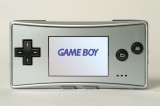
According to
a Game Daily Biz report, NPD Funworld has released their analysis of 2005, proclaiming that the videogame industry has passed another major milestone. Last year game industry sales totalled $10.5 billion, which is a new record. In spite of retail anxiety over what was ultimately a slower-than-usual fourth quarter, games came through. Surprisingly, perhaps, the high sales figures last year were not due to the Xbox 360, or the PSP, both of which launched in 2005.
Times of console transition are not expected to be highly profitable, but that conventional wisdom was turned on its head this year, thanks largely to sales of handheld games and platforms, which set a new record this year with $1.4 billion in sales. The PSP launched in March 2005, and Nintendo\'s DS has had a very good year, seeing a second generation of games that utilizes their touch screen technology. However, it wasn\'t either of these two systems that took the lead role for handheld gaming.
The big seller this year was Game Boy Advance games and hardware units. The GBA Micro, a super slim version of the Game Boy Advance marketed as a fashion accessory and handheld gaming console, released in 2005, adding to GBA\'s popularity. According to NPD, the GBA accounts for 64% of all portable hardware sales, and 52% of all portable game software sales.
Overall, console systems and software sales were down for the year, as much as 12% in some categories. NPD attributes this decline to the transitional stage of console development. As gamers wait for next-gen consoles and games, they are less likely to invest in older systems. In addition, the delay of several major titles (Legend of Zelda: Twilight Princess, Elder Scrolls IV: Oblivion, and more) left gamers waiting to spend their money.
The other interesting bit of analysis coming from NPD regarding last year\'s sales is the increase in the female gaming audience. Women gamers have accounted for more and more game sales, according to NPD\'s Hits Monitor data. NPD identifies women gamers as the most lucrative demographic for game publishers to go after, claiming that although women may not be the primary players in the household, they often play with other family members and friends, and they are increasingly spending money on games that work well in social environments.
All of this sales data bodes well for 2006, which should see two major console releases (Nintendo\'s Revolution and the PlayStation 3). Publishers and retailers have been worried about their profits during this generational shift, but, if 2005 is any indicator, it takes more than they predicted to deter gamers from buying games.
 According to a Game Daily Biz report, NPD Funworld has released their analysis of 2005, proclaiming that the videogame industry has passed another major milestone. Last year game industry sales totalled $10.5 billion, which is a new record. In spite of retail anxiety over what was ultimately a slower-than-usual fourth quarter, games came through. Surprisingly, perhaps, the high sales figures last year were not due to the Xbox 360, or the PSP, both of which launched in 2005.
According to a Game Daily Biz report, NPD Funworld has released their analysis of 2005, proclaiming that the videogame industry has passed another major milestone. Last year game industry sales totalled $10.5 billion, which is a new record. In spite of retail anxiety over what was ultimately a slower-than-usual fourth quarter, games came through. Surprisingly, perhaps, the high sales figures last year were not due to the Xbox 360, or the PSP, both of which launched in 2005.